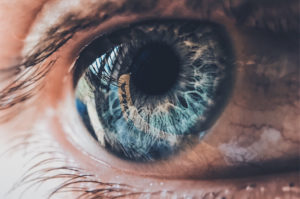
The U.S. Food and Drug Administration recently gave its OK to the first artificial iris—the colored part of the eye that surrounds the pupil.
The surgically implanted device can be used on adults and children whose iris is missing, has been damaged by a congenital condition called aniridia, or has been injured, the agency said in a news release.
“Patients with iris defects may experience severe vision problems, as well as dissatisfaction with the appearance of their eye,” said Dr. Malvina Eydelman, who directs the division of ophthalmic, and ear, nose and throat devices at the FDA’s Center for Devices and Radiological Health.
“Today’s approval of the first artificial iris provides a novel method to treat iris defects that reduces sensitivity to bright light and glare. It also improves the cosmetic appearance of the eye in patients with aniridia,” she said.
Aniridia is a rare genetic disorder that leaves the iris completely or partially gone. It affects an estimated one in 50,000 to 100,000 people in the United States. Since the iris controls the amount of light entering the eye, those with aniridia are sensitive to light and have other severe vision problems.
In addition to congenital aniridia, the CustomFlex Artificial Iris can be used to treat iris defects due to conditions such as albinism, traumatic injury or surgical removal due to melanoma, the FDA said.
The artificial iris is made of thin, foldable silicone and is custom-fitted and colored for each patient. To insert it, a surgeon makes a small incision, places the device under the incision, then unfolds it and smoothes out the edges using surgical instruments.
The safety and effectiveness of the CustomFlex Artificial Iris was primarily shown in a non-randomized clinical trial of 389 adult and pediatric patients with aniridia or other iris defects.
More than 70 percent of these patients said they experienced significant decreases in light sensitivity and glare, as well as an improvement in quality of life. Ninety-four percent of the patients said they were pleased with the device’s appearance, the FDA added.
Patients reported low rates of adverse events due to the device or the operation to insert it, the agency said.
The CustomFlex Artificial Iris is marketed by HumanOptics AG, in Erlangen, Germany.
 /a>
/a>
 /a>
/a>
 /a>
/a>